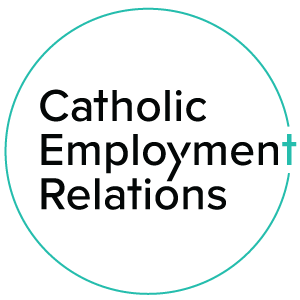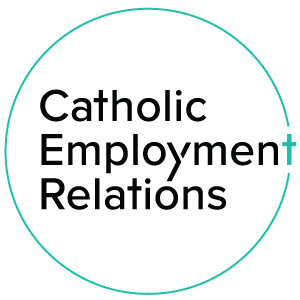Fair Work Legislation Amendment - update #3
Listen here:
The Australian Government has passed the Fair Work Legislation Amendment (Secure Jobs, Better Pay) Act 2022 (Amendment). This legislation amends the Fair Work Act 2009 (Act) to change a number of existing rules and introduces a range of new workplace laws. The new laws start on different dates (link to timeline PDF).
Within this update, we'll delve into the new developments regarding:
Industrial action
One of the key changes relates to the rules around industrial action. From 6 June this year, protected industrial action will be able to be taken in support of multi-enterprise agreements, with the exception of cooperative workplace agreements which is not something that is currently available to unions.
The application for a protected ballot order will be dealt with by the Commission as multiple applications, one for each employer covered by the agreement, and separate ballot orders will be made for each individual employer.
This means that the all the requirements for the ballot will need to be satisfied for each employer separately, including a majority vote in support of the action. So, if a majority of the employees who voted at one employer don’t vote in favour, then the unions won’t be able to proceed with industrial action against that employer.
There is another change which places an additional requirement to the process, and that is when a protected action ballot order has been made, the bargaining representatives must attend a conciliation conference during the ballot period. Unions must comply with the order to attend the conference before industrial action can be taken.
There are also changes to notice requirements for multi-enterprise agreements - 120 hours (or 5 days) written notice will required before industrial action can be taken. That is a longer period than the usual 3-day notice requirement which will continue to apply for single enterprise agreements.
Single interest employer bargaining stream
This is arguably the biggest change made by the Amendment and one that will have significant impacts for many employers. In short, a single interest employer authorisation compels employers to bargain together with other employers on the same enterprise agreement.
The Act already provides for multi-enterprise bargaining, but currently a multi-enterprise agreement is instigated by employers and there are certain provisions of the Act that are not available to unions in relation to a multi-enterprise agreement, such as bargaining orders, industrial action, majority support determinations, and scope orders. Existing multi-enterprise agreements will become known as ‘cooperative workplace agreements’.
Single-interest employer authorisations are not new (they involve multiple employers making a single enterprise agreement). The Act also already provides for them, but are limited to applications made by employers. And those employers must be related entities, in a joint venture, or a common enterprise.
The Amendment significantly expands, and somewhat merges, the two separate concepts of single-interest employer authorisations and multi-enterprise agreements.
The Commission must take the following into consideration when deciding whether to make a single-interest employer authorisation, once an application has been made by a union and if the employers do not consent to it:
the union represents at least some of the employees that will be covered; and
employers and employees have been given an opportunity to express their views; and
a majority employees to be covered want to bargain for the agreement; and either:
the employers carry out similar activities under the same franchise; or
the employers have “clearly identifiable common interests”.
The responsibility of proving that one employer has common interests with the others in the scenario of the employer having less than 50 employees falls to on whomever is seeking the authorisation to prove that the test is satisfied.
In cases where the employer has 50 or more employees, there is a presumption that they are a common interest employer and that their operations and business activities are reasonably comparable with the other employers. It will then be up to that employer to rebut that presumption and provide enough evidence to prove that the test isn’t satisfied.
Small businesses, being employers with less than 20 employees can’t be added to a single interest employer authorisation unless they’ve agreed to be included.
If an employer is included on one of these authorisations, it means the authorisation can cover the employer without their consent. The only kind of agreement the employer can make with those employees is the single interest employer agreement and the employer will be prohibited from initiating bargaining or agreeing to bargain for any other kind of agreement.
Exemptions can apply in certain circumstances, including:
Where the employer has less than 20 employees, as stated above;
Or where an existing enterprise agreement already has coverage, and it is has not yet passed its nominal expiry date;
The Commission may also decide not to add the employer if they are bargaining in good faith for a proposed agreement, they have a history of effectively bargaining for enterprise agreements, and it’s been less than nine months since the nominal expiry date of the last agreement.
One controversial aspect of this provision is the amount of power and control unions will gain. This is because, absent an order from the Commission, an employer will be prohibited from asking employees to vote on a proposed multi-enterprise agreement unless the unions have agreed in writing. That means we may start to see a shift in decision making power from employees to unions.
Currently that way it works is that when bargaining has reached an impasse and the employer has indicated that it has made its best and final offer, the employer can approach its employees and put the agreement to them for approval. This one change alone gives unions a substantial amount of leverage and takes away an important tool that employers had to bring extended bargaining to a close.
The provisions dealing with the single interest bargaining stream and the supported bargaining stream will came into force on 6 June 2023.
Supported bargaining stream
The new supported bargaining stream is the new name for low-paid authorisations, which was rarely used. There were only four applications made and only one of those was granted. No multi-enterprise agreements were made as a result. This was due to onerous criteria required to satisfied.
The supported bargaining stream operates in a similar way. It was created to assist workers who face barriers in negotiating their terms and conditions of employment, and who require support to bargain.
It’s a framework to facilitate multi-employer bargaining in lower-paid industries such as aged care, disability care, and early childhood education. It is also there for employees with a disability and for other sectors such as those which are culturally and linguistically diverse.
The supported bargaining stream will operate similarly to the single interest employer authorisations in many ways. Employers named in an authorisation are unable to make any other type of enterprise agreement in respect of those employees. They can be forced onto a multi-employer agreement without their consent. It is very difficult for an employer to be removed from an authorisation. And just like the single interest employer stream, bargaining will continue for as long as it takes until the unions agree that the agreement can be put to employees for a vote or until the Commission makes an order.
The Commission will make an authorisation where it’s satisfied that it’s appropriate for those employers and employees to bargain together. There are several matters which the Commission can consider including industry pay and conditions and whether the employers have common interests.
The first in time rule does not apply to supported bargaining agreements. Meaning that if a single enterprise agreement applies and a supported bargaining agreement is made. The single enterprise agreement will cease to apply, even if it hasn’t yet passed the nominal expiry date.
Listen to the CER matters podcast
Fair Work Legislation Amendment (Secure Jobs, Better Pay) Act 2022 - how will the changes affect your organisation, and when exactly will they come into effect?
Download your free guide and timeline which provides detailed information on the important dates and issues that will need to be addressed to ensure compliance.
Our professional CER team are here to help you understand your obligations and ensure that you have sufficient procedures and processes in place. Contact enquiry@cer.catholic.org.au.

